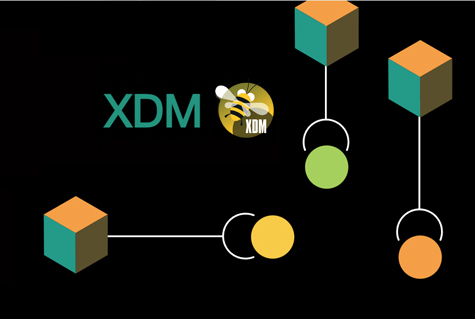The move towards new business models powered by digital technologies is already happening. This presents major strategic challenges for companies, especially in the area of data governance. The quality and procurement of test data, as well as the requirements for software testing, also play a crucial role. Efficient applications are essential for achieving business success.
Business Models
Three types of data-based business models can be distinguished:
- A “Low Data Business Model” typically refers to a business model that operates with minimal reliance on data or has limited data-driven components. In such models, data may not play a significant role in decision-making processes, customer interactions, or product/service offerings.
- A “Data-Enhanced Business Model” is characterized by a strong reliance on data and its strategic utilization to enhance various aspects of the business. Data is actively collected, analyzed, and used to drive decision-making, optimize operations, improve customer experiences, and innovate products or services.
- A “Pure Data-Driven Business Model” relies on data as the main driver for decision-making, operations, and strategy across all aspects of the business. This model heavily relies on data-driven insights and analytics for every facet of the business, including product development, customer service, and marketing.
Data plays a critical role in shaping business models in the digital age. It is the linchpin of these new models. Managing data on a day-to-day basis is one aspect, using it strategically is the other.
Data Strategy
A company’s long-term success still depends on an effective business strategy. Today, however, that strategy must be expanded to include an IT and data strategy. The more a company relies on digital technologies to stay competitive, deliver its products, and grow its customer base, the more important this strategy becomes.
Data Governance encompasses the definition of processes, standards, and roles related to data and is an essential component of the enterprise-wide implementation of data strategy and the organization of data management. Special attention is paid to data quality, which is a prerequisite for process automation and consistent decision making. This not only contributes to the efficient use of resources, but also enables data-driven decisions that support long-term business success.
Operational implementation
By consistently implementing Data Governance, organizations can ensure the quality of their data, increase the efficiency of their processes, and foster a data-driven culture that promotes innovation and growth.
If applications and software are seen as the foundation and essential building blocks of these new business models, then high quality and continuous updating of the software in use is an absolute prerequisite for business success. However, the continuous development of applications can only be ensured in conjunction with continuous testing.
Significance of test data
The test data used must be representative of the actual production data to ensure that the data models can be developed and validated correctly. If this is not the case, incorrect assumptions may be made about the structure and relationships of the data, leading to incorrect models and compromising the effectiveness of data governance.
Test data must also comply with the data protection and security standards that apply to production data. By using high-quality test data, data privacy and compliance policies can be adhered to, which is critical for complying with regulations such as GDPR.
In order to ensure software applications are tested under real-world conditions, it is important to use diverse test data that covers different scenarios and edge cases. Insufficiently diverse test data may result in missed bugs and vulnerabilities, leading to malfunctions or security breaches.
High-quality test data can identify and resolve such issues early, ultimately improving the stability and reliability of the data infrastructure and ensuring the integrity of Data Governance.
Automation as a standard
Test data automation, as provided by XDM of UBS Hainer, enables the fast and efficient delivery of such test data, which is crucial for maintaining a continuous development and deployment cycle. Automating the procurement process allows developers and testers to obtain customized, up-to-date, and realistic data with the push of a button, without having to wait for manual intervention or lengthy approval processes.
Automated procurement of test data ensures consistent data quality and integrity. Pre-defined rules and scripts are used to avoid potential errors or inconsistencies in data delivery, increasing the reliability of test results and reducing misinterpretations.
Automated test data procurement allows for improved scalability and flexibility. Organizations can easily integrate additional test data sources or update existing data sets to meet changing requirements without slowing down the development process or impacting productivity.
Automated procurement of production-related test data accelerates time to market for software products, improves quality assurance, and increases efficiency in the development process. This ultimately leads to greater competitiveness and customer satisfaction.


